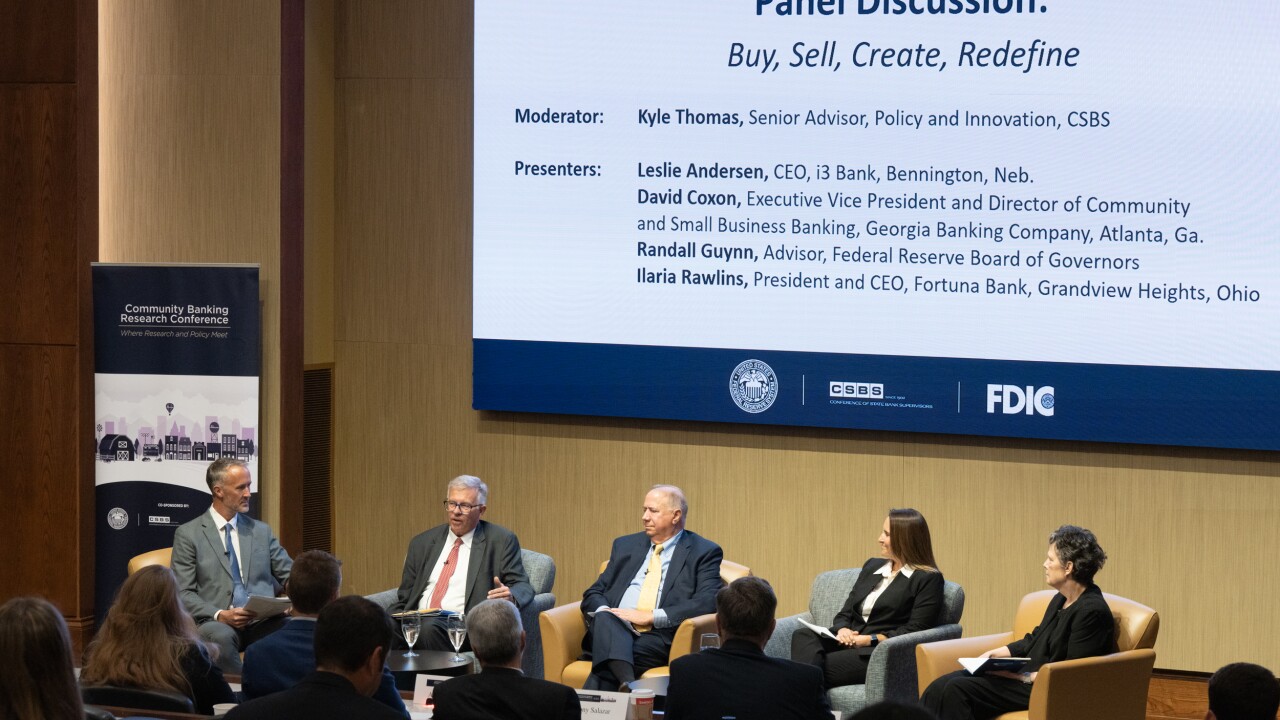It’s all in the name.
And American Express Co. says the “black card” name is more synonymous with its high-end Centurion card than the copycat Visa Black Card issued by Black Card LLC and Barclays Bank Delaware.
The two card companies have been fighting a legal battle since April 2009, when Scott Blum’s premium card firm took out a trademark registration for the “black card” name. In doing so, he sought to prevent other entities from using it, and then filed a lawsuit in its home state of Wyoming accusing Amex of infringing on that trademark. Blum also founded online retail giant Buy.com and runs several other firms, including Black Card LLC under the name ThinkTank Holdings LLC.
But a judge on Dec. 15 delayed a conference in the fight over the “black card” name and subsequent marketing until January, although Amex gave the Black Card LLC Visa Black Card a black eye after winning a summary judgment in November that prevents Black Card from trade marking the “black card” name.
Amex has long contended that its black titanium Centurion card, introduced in 1999 and featuring a $2,500 annual fee and a high or unlimited spending limit, is best known as “the black card,” a sentiment echoed on many blogs and online forums where consumers have written and compared the two “black” cards.
Rapper Kanye West even referenced the “black card” with the lyrics to the song “Last Call:” “Oh my God, is that a black card? I turned around and replied, why yes, but I prefer the term African American Express.”
Amex based its countersuit against the Visa Black Card on the sentiment that Blum’s card takes unwarranted thunder from Amex, as it claims to be a similar premium card offer but makes false claims about the card’s abilities, among other factors.
In the November summary judgment that backed Amex’s claims, a New York federal judge overseeing its trademark and unfair competition suit ruled that Black Card LLC’s “black card” trademark should be canceled because the mark is merely descriptive of the card.
In that judgment, U.S. District Judge Denise L. Cote ruled that Amex “was entitled to summary judgment on its trademark cancellation claim against Black Card, finding that the Black card mark was descriptive and that Black Card had failed to show that it had acquired a secondary meaning,” associating the name with the Black Card’s actual credit card. Descriptive marks are only entitled to trademark protection if a ruling determines that the name has acquired secondary meaning. Due to the current pending lawsuit, Amex declined to comment on whether or not it will file its own trademark lawsuit on “black card” because it does have evidence that its name has secondary meaning.
Amex filed the suit in February 2010. In addition to its cancellation claim, Amex accused Black Card of trademark infringement and false advertising, cyberpiracy, unfair competition, and trademark and trade-dress dilution. Cyberpiracy refers to staking claims on an Internet domain. Trademark dilution refers to when consumers hear of a brand and associate its attributes with another brand. So if consumers associate “black card” with Amex and see Black Card LLC ads they may think those offerings are from Amex.
Features on the Visa Black Card include access to airport lounges, a $495 annual fee, a 24-hour concierge service and a rewards program that offers 1% cash back on all purchases. Amex’s Centurion card, with a $2,500 annual fee, offers similar features plus access to the Global Entry program, which enables international travelers to walk through expedited lines for U.S. customs. An online comparison of the two cards also reveals that the Centurion card offers unlimited visits to exclusive airport lounges, while the Black Card limits annual visits to four.
Barclays did not respond to requests seeking comment on the lawsuits. PaymentsSource was unable to reach Black Card LLC.
Amex has not been shy about promoting the benefits of its premium card products in the face of fierce competition for affluent customers, as it launched an ad campaign in September to tout what makes Amex cards different from other so-called premium products (
What do you think about this? Send us your feedback.




